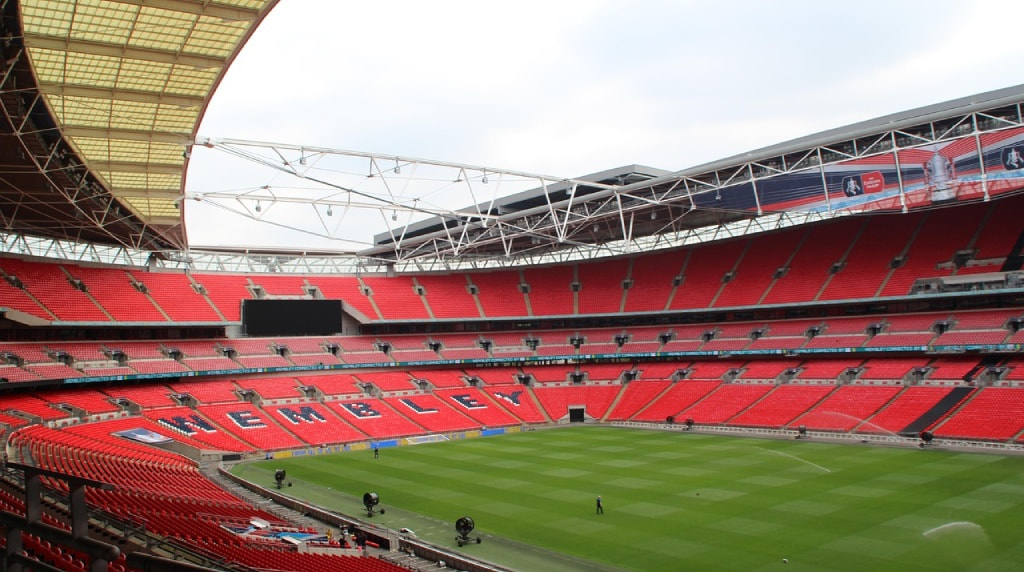Sports Sponsorship Deals Only for Licensed Gambling Companies
Unlicensed companies could be prevented from signing sports team sponsorship deals in the UK.

Unlicensed companies may not be able to sponsor sports teams. © ChrisSchweiger, Pixabay
Key Facts:
- UK Government plans to end sports sponsorship deals with unlicensed companies
- Some unlicensed companies have ongoing deals with Premier League clubs
- Being sponsored by a company without a licence is allowed by the UKGC
Plans are being made by the UK Government to prevent unlicensed gambling companies from signing sponsorship deals with sports teams. If the ban were to go ahead, deals with various clubs, including those in the Premier League, would be affected.
Lisa Nandy, the Culture Secretary, has complained about unlicensed companies being able to
Raise their profile and potentially draw fans towards sites that don’t meet our regulatory standards – Lisa Nandy, Labour MP comments on sponsorships with unlicensed gambling companies, iGamingExpert
The Department for Culture, Media and Sport (DCMS) is establishing a consultation on the issue this spring. It’s expected that this will reduce the risks of illegal gambling activity and make business fairer for licensed, regulated companies.
The UKGC’s Rules on Deals with Unlicensed Gambling Companies
According to the UKGC’s current rules, sports teams may sign sponsorship deals with gambling sites that aren’t licensed in the UK. However, they must prevent their UK customers from accessing these sites.
Nandy has also said that
When placing a bet on the big match, fans deserve to know the sites they’re using are properly regulated, with the right protections in place – Lisa Nandy, Labour MP talks about sports fans and illegal sites, iGamingExpert
Several major Premier League teams have deals with sites that don’t hold a UK licence to operate. These include Bournemouth (bj88), Burnley (96.com), Fulham (SBOTOP) and Wolves (DEBET).
The sponsors of Fulham and Wolves accessed the UK market through a white-label deal with TGP Europe. This company has since left the UK after being fined by the UKGC for anti-money laundering and due diligence failures.
Incoming Changes Put in Place by the UKGC
When the next season of the Premier League starts on 22 August, Premier League teams won’t be allowed to sign front-of-shirt sponsorship deals with gambling companies. This rule covers both licensed and unlicensed companies.
The Premier League decided in 2023 to prevent players from displaying gambling company branding on their shirt fronts. However, it doesn’t cover everything that can be branded.
Players’ shirt sleeves will be allowed to display gambling logos starting next season. Gambling ads will also be permitted on training clothing and on advertising boards surrounding football pitches.
Some teams that aren’t in the Premier League also have sponsorship deals with unlicensed sites. Leicester City is a prime example, as its current partner is BC.Game; the deal hasn’t gone down well with fans, though.
Then there’s Birmingham City, which has inked a sponsorship deal with Duelbits. This particular site used to be licensed in the UK, though, like the sponsors of Fulham and Wolves, it had to leave the UK.
If the current plans to ban deals with unlicensed sites go ahead, the agreements that Leicester City and Birmingham City have wouldn’t be permitted. Like the government, the UKGC is keen to prevent gambling at unlicensed sites.
The organisation also wants companies operating without a licence to be prevented from using UK sports institutions to promote themselves. It only wants licensed sites to benefit from the visibility sports sponsorship deals can bring.
Illegal Gambling Task Force
An illegal gambling task force has recently been set up. This is planned to tackle illegal gambling on a larger scale by reducing social media ads promoting unlicensed sites and even stopping payments to such sites.
The task force aims to do this by working alongside social media and banking companies, while also involving law enforcement. The ultimate goal is to reduce illegal gambling as much as possible.
According to Gambling Minister Baroness Twycross,
This consultation, alongside the work of our Illegal Gambling Taskforce, shows how seriously this government is taking the issue. We will not hesitate to act where we see people being put at risk – Baroness Twycross, Gambling Minister discusses task force set up to address illegal gambling, iGamingExpert
She also mentioned that gambling sites that aren’t regulated can cause a lot of harm. As well as exploiting vulnerable people, they can leave players without the basic protections they should have when gambling online.

 Sports Sponsorship Deals Only for Licensed Gambling Companies
Sports Sponsorship Deals Only for Licensed Gambling Companies
 Gameburger’s 12 Pots of Gold Drum Frenzy Set for Release
Gameburger’s 12 Pots of Gold Drum Frenzy Set for Release
 Play Blueprint Gaming’s King Kong Splash Slot on 26 February
Play Blueprint Gaming’s King Kong Splash Slot on 26 February
 Reelplay’s Pearl Reef Gigablox Multimax Coming to Online Casinos
Reelplay’s Pearl Reef Gigablox Multimax Coming to Online Casinos